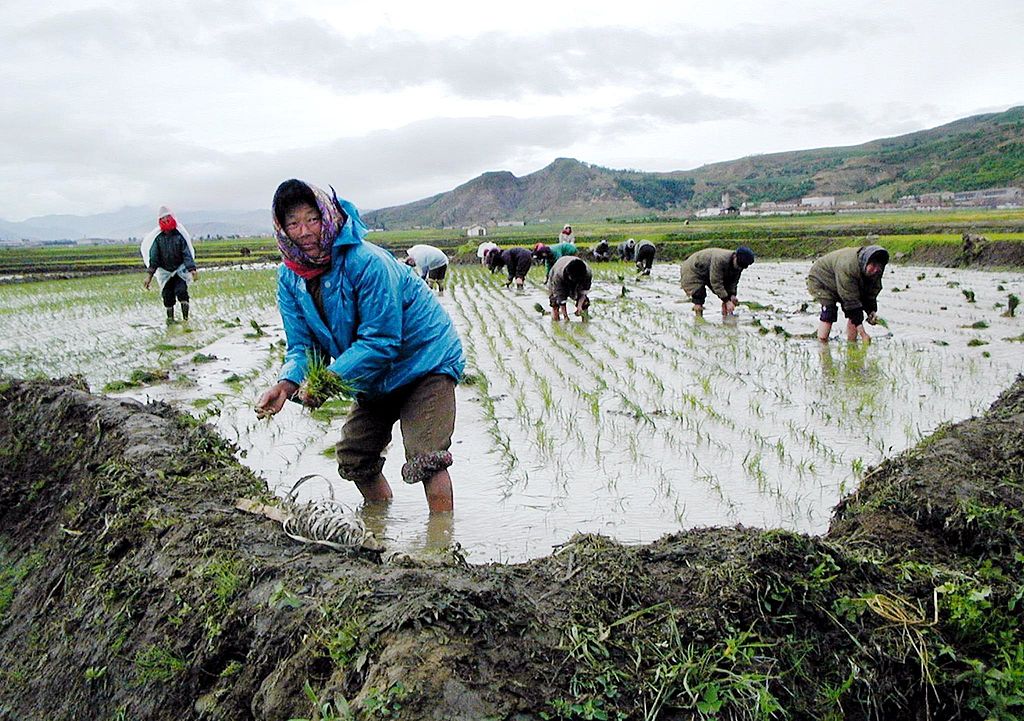
With the Ukrainian breadbasket’s link to global markets disrupted by the ongoing Russian invasion, global food security has been unusually prominent in the news cycle. Shortly after the invasion began, some analysts were quick to warn against
‘beggar thy neighbour’ food trade restrictions, and the UN World Food Programme recently stated that the war is
driving a ‘global food crisis’. Famine
looms in a range of countries, including
Somalia and Afghanistan, but the growing food insecurity risk in North Korea has attracted surprisingly little renewed coverage.
There has been sporadic reporting since mid-2021 suggesting that serious food shortages were once again emerging in North Korea. State media reporting of a June 2021 Worker’s Party Central Committee meeting
quoted the country’s leader, Kim Jong-un, saying, ‘The people’s food situation is now getting tense.’ In November,
the BBC, citing reports from defectors in South Korea and assessments by Seoul’s National Intelligence Service, commented, ‘There is a concern as winter approaches that the most vulnerable will starve.’
By early this year, based on official statements from the ruling party’s January plenum, the
International Crisis Group wrote: ‘Given the concern expressed in the plenum report about farming, we can assume a degree of difficulty for many North Koreans in getting food—either because it is in short supply or because market prices are out of reach for people who have seen their incomes fall.’
It’s difficult to believe that the situation will have improved much in the year to date, but making any assessment at all is difficult. The Covid-19-driven closure of the border between North Korea and China has both contributed to severe food insecurity and made reliable information about the North scarcer than ever. While the bilateral nature of China’s food aid to the North means international observers have difficulty grasping its exact scale, China is widely acknowledged as the most significant source of
food imports and food aid for the country.
In May, after North Korea officially reported its first case of the Omicron variant,
Foreign Policy observed that the country ‘may be trapped between famine and plague’. The dual challenge of food shortages and pandemic response will have been tough enough for Kim’s regime, but the
import ban the regime is reported to have imposed on crucial trade with China can’t have helped matters.
North Korea is heavily sanctioned and therefore in many ways not affected by fluctuations in global markets like the turmoil precipitated by the war in Ukraine, but imports still matter. It has continued to rely on
oil imports for a range of agricultural inputs, including fertilisers and diesel, for example. Sanctions have
severely restricted the availability of crude oil to the North for some time.
Natural disasters have also played a part in food shortage concerns over the past several years, and recent conditions are cause for concern.
The Economist and World Food Programme have noted that snow coverage, a critical factor in North Korea’s agricultural rhythms, was
markedly below average in both 2021 and 2022. ‘By the regime’s own admission, this year’s drought is the second-worst since records began in 1981.’
The US
national intelligence estimate on climate change, which identifies North Korea as one of the states most vulnerable to climate impacts, suggests its effects should be considered the new normal: ‘North Korea’s poor infrastructure and resource management probably will weaken its ability to cope with increased flooding and droughts, exacerbating the country’s chronic food shortages.’
There are links between famines and political instability, but they are
complex,
varied and context specific. North Korea has a well-known and tragic history of famines, most notably the deadly
1994–1998 event, which also highlighted the
political nature of famines. These events are not simply a matter of crop failure, but of government choices, market access, aid and other factors. The catastrophic nature of the 1994–1998 famine, through which the regime endured, also signals that as much as famines are a challenge for the government, they don’t pose any clearcut threat to regime survival.
Just as it is difficult to make sense of what’s actually going on inside North Korea, it is also difficult to make sense of how food insecurity might influence its foreign policy and the internal political situation facing the regime. The International Crisis Group suggested that domestic and agricultural woes would likely mean the regime would be inwardly focused during 2022—yet we’ve seen a most
active period of missile testing. The testing could well be targeting a domestic audience. More likely, the development of nuclear weapons serves multiple ends, including for deterrent purposes and as a source of leverage for the regime’s broader political and strategic interests.
The impact of this situation on the Korean People’s Army is another open, but potentially significant, question. There were reports last year of
malnutrition concerns for military personnel, for example. It’s also worth noting that the KPA has historically played a role as an auxiliary
agricultural labour force. The most recent
UN reporting, which described ‘the strong possibility of starvation’ as alarming, also stated that ‘rice from the military reserve had been released to soldiers’.
Events in North Korea remain as opaque as ever, perhaps compounded by Kim’s need to disguise dire food insecurity, as well as the further shuttering of the country that has occurred over the Covid years. What reporting is available suggests that the prospect of devastating famine still looms. We’re unlikely to get an accurate read on events in North anytime soon, but it seems unlikely that the reality is a happy one.
 Print This Post
Print This Post